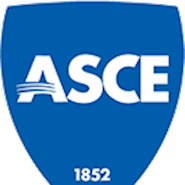
Hesham Ahmed Rakha, Ph.D., P.E., F.ASCE, director of the Center for Sustainable Mobility at the Virginia Tech Transportation Institute, has been named a fellow by the ASCE Board of Direction.
For 35 years Rakha has led original research in multimodal large-scale transportation system optimization, modeling, and assessment (he is recognized as an IEEE fellow in this area). His fundamental research – over 540 peer-reviewed papers and book chapters – culminates in the continuous development of the INTEGRATION software, an internationally recognized transportation modeling tool that was used in a number of high-impact large-scale modeling efforts, among them the modeling of Greater Salt Lake City and sections of Beijing to optimize road construction in preparation for the 2002 and 2008 Olympics.
His research includes the modeling of human travel and driving behavior; optimizing longitudinal and lateral motion of various ground transportation modes (cars, buses, trucks, trains, and bicycles); developing calibration methodologies for transportation modeling tools; large-scale modeling of the interdependencies of the communication and transportation systems; and development of theory models to compute vehicle delay, stops, energy/fuel consumption, emissions, and crash risk.
Rakha is a pioneer in integrated transportation and energy/emission modeling and has developed systems to reduce transportation GHG emissions. He developed various vehicle energy/fuel consumption and emission models used worldwide (VT-Micro model is a registered invention). He developed the only fuel consumption model that is calibrated using publicly available data (VT-CPFM). The framework was extended to battery electric vehicles, plugin hybrid electric vehicles, hybrid electric vehicles and buses, hydrogen fuel cell vehicles, and electric trains. Using these models, Rakha led the development of algorithms and systems to reduce vehicle GHG emissions that include optimal vehicle control, traffic control, dynamic routing, departure time optimization from large events, and tools to incentivize travelers to use more environmentally friendly modes of transportation.
Rakha’s work in transportation safety has assisted legislators in implementing new safety technologies in the vehicles we see today. Specifically, his work on the evaluation of adaptive cruise control (ACC) systems assisted in the commercial implementation of these systems. His work on truck forward-collision warning (FCW) systems, together with other studies, resulted in the NHTSA approving these systems. He won three best paper awards in this area.
Rakha has graduated 35 doctoral and 47 master’s students, and mentored 23 postdocs and taught over 1,000 undergraduate and graduate students in transportation planning and engineering. In addition, he serves in various editor positions for scientific journals; has served as an editor, associate editor, and co-chair on 24 IEEE conferences; and has served or is serving on numerous international transportation committees.
He has received eight conference best paper awards, the “most cited article award” from the IJTST Journal, the IEEE ITS Outstanding Research Award, and won the IEEE ITSC 2020 UAS4T Competition. His expert input has been solicited in 22 news releases and media interviews. Rakha’s work has over 18,900 citations and an h-index of 69 (Google Scholar).



